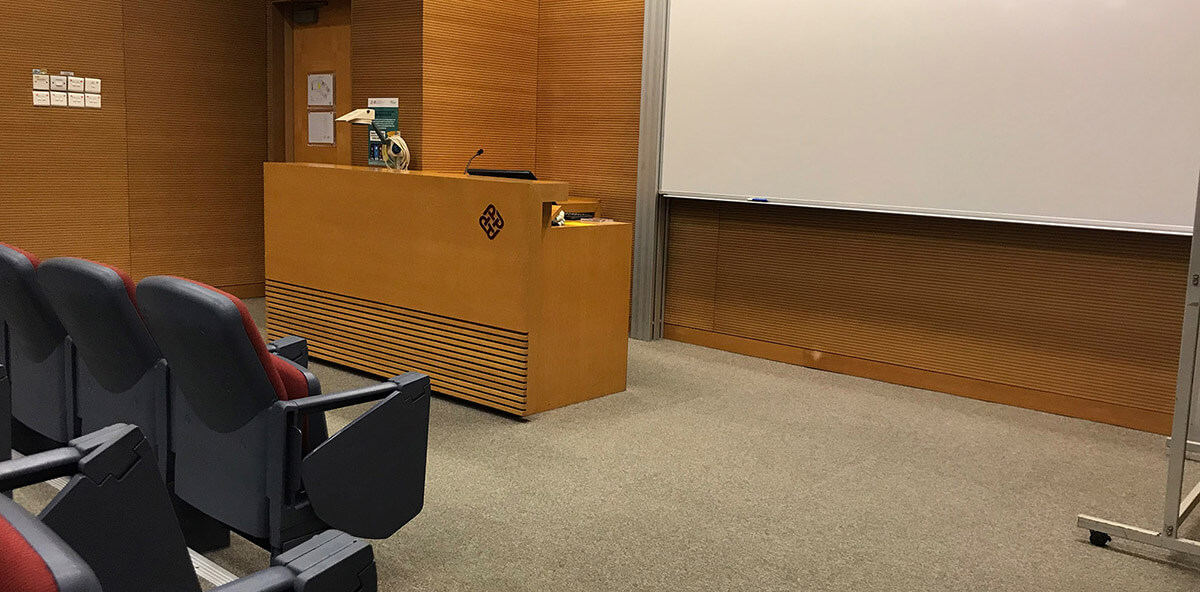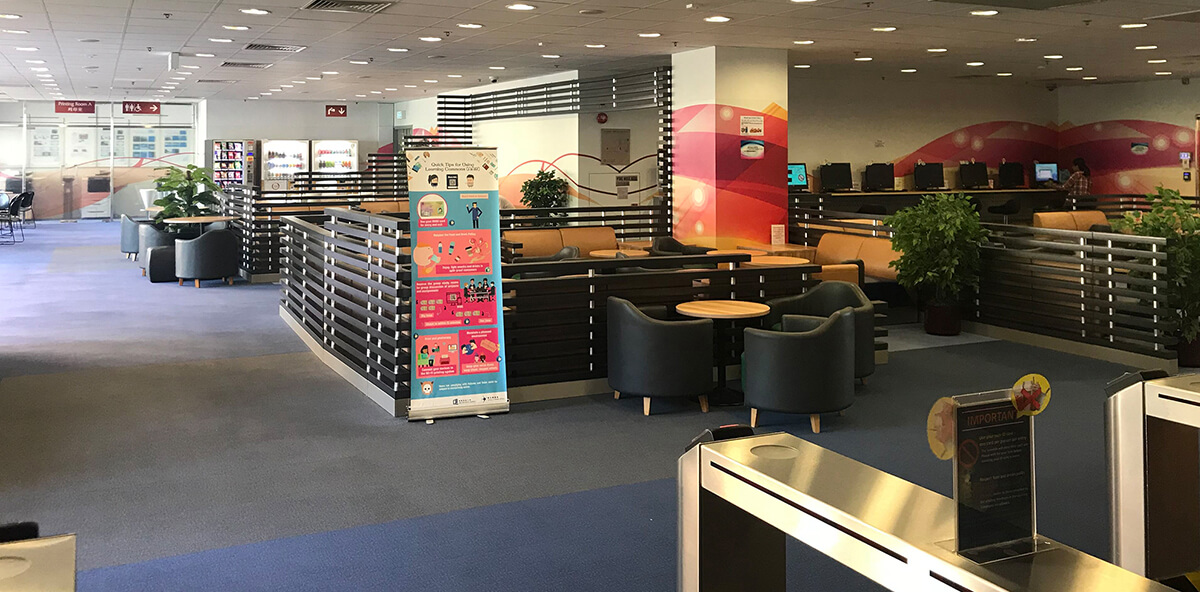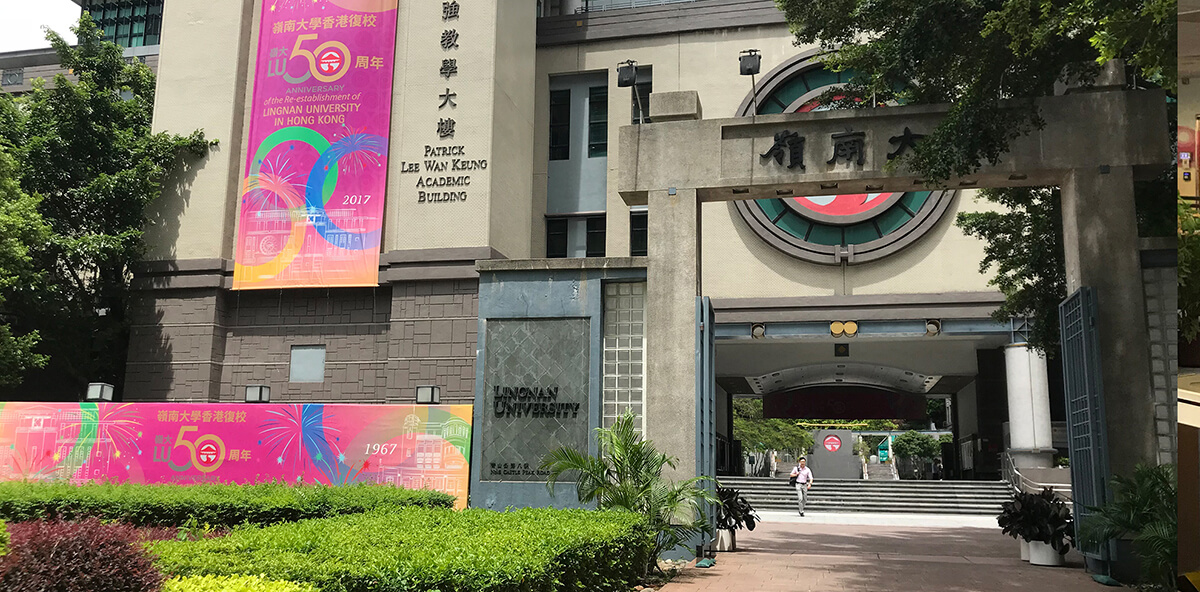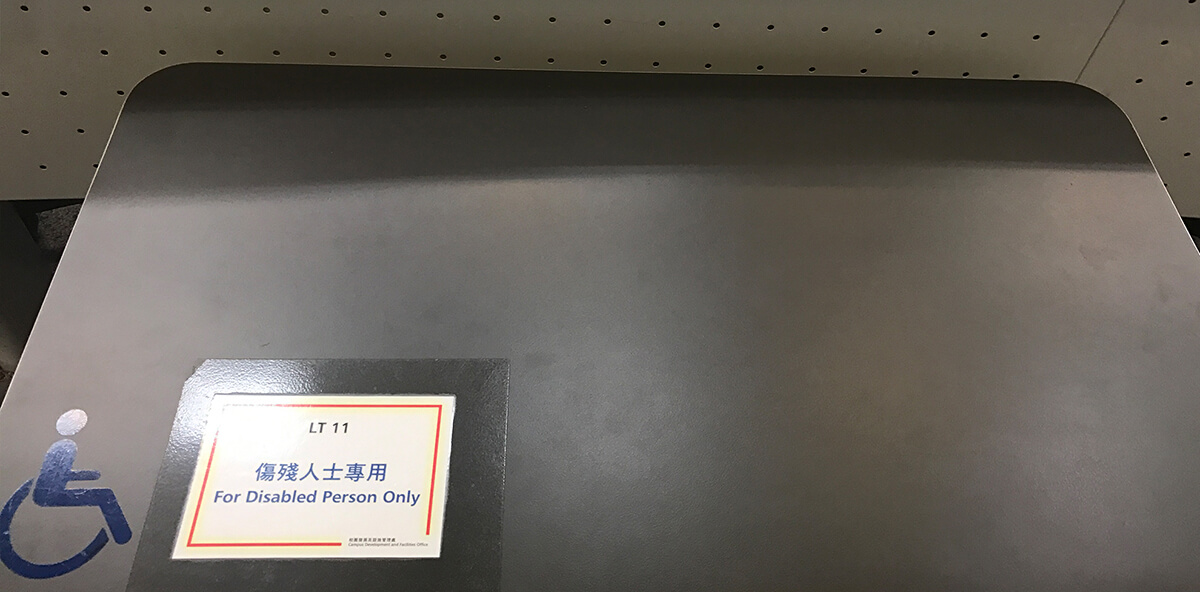(1) Campus life
Many wheelchair friends have a lot of doubts and fears that they cannot adapt to the new environment when choosing a university. In fact, with universal education and more and more friends with different needs entering universities, different universities have made a lot of cooperation in hardware and software, such as curriculum design and learning arrangements, to create a good environment for different students.
Curriculum design
Class time
The class time for each subject can be selected and allocated by yourself, and you can allocate the time that suits you best. Generally, universities choose about 4 subjects in each semester, and each subject takes about 6-8 hours a week. When there is a chance, the classmates will concentrate the class on 3 days, and they can get two extra days of vacation (day-off) in addition to the weekend. But sometimes the class time of the subjects of interest cannot be matched, and there will be a situation in Tianditang. There are many hours between classes, and you can go to the library for self-study or rest to spend time.
Learning arrangement
Most subjects will be completed in one semester. Each semester requires different subjects to be dealt with. It can be expected that all the subjects you learn will be knowledge of the selected subjects, and each subject needs to be related, but not as continuous as in primary and secondary schools.
There will be theoretical lectures (Leature) and group lectures (Tutorial) for each subject. In many cases, you have to complete your homework in a group with your classmates, which takes longer than independent homework, so it is more appropriate to choose subjects within five subjects each semester . Wheelchair users can arrange a suitable study plan according to their physical condition. Schools usually require at least 4 to 5 courses in each semester. However, wheelchair users can try to ask the school for discretion and take fewer courses.
Classroom selection
The length of the interval between each lesson varies, so you must arrange how to cooperate, and properly arrange the time for class, rest time and meal time between classes. For example, if wheelchair friends do not have a dormitory, they should reserve more time for class.
Schools are very busy during lunch time and the queue time is long. Therefore, one hour may not be enough for lunch. It is recommended to reserve more than one hour for lunch during class time, or to advance or postpone lunch time to after peak hours.
Learning resources
Class materials and notes are also posted on the intranet system or by e-mail. It is necessary to keep abreast of the latest information; such as class time or classroom transfer arrangements, the school will notify by electronic notice and e-mail.
In fact, before students with special learning needs enroll in universities, most of them have groups of faculty and staff to understand the needs of students at the beginning of school (or every six months). For example, if students with inflexible hands have difficulty in using physical notes, you can tell The physical condition of the course lecturer requires that e-learning resources be provided as much as possible.
Assessment mode
The university’s assessment model is formulated by course instructors, and students’ performance will be assessed in diversified models, including in-hall exams, take-home exams, project studies, and internships.
In response to the physical condition of people with mobility impairments, students can actively try to seek assistance to match the assessment mode. There are examples of those who have hand barriers and cannot write, they can arrange for someone to write on their behalf during the time-limited exam, and even discuss the assessment with the lecturer before the course starts. mode. Universities support diversified teaching, and generally have higher flexibility than traditional schools. Students should take the initiative and promptly to propose.
Group life
Orientation activity
Generally speaking, the orientation activities of student groups are mostly sports and outdoor activities, and the students sponsored by them have little experience and may not understand the needs of wheelchair users and fail to grasp the way to get along. Therefore, wheelchair users usually participate in orientation activities less frequently.
The school may specially arrange orientation activities for people with disabilities to participate. In addition to getting to know new students, integrate as soon as possible, find your own circle, and get to know fellow brothers and sisters. If you have any questions in the future, you can ask them for help. Check with the school for relevant arrangements. For example, HKU CEDARS will provide special arrangements for students with special needs to help them understand and adapt to campus life.
Learning partner
In addition to major core courses, each class will also have classes with different students, so that you can meet friends from different major subjects and exchange academic experiences.
Project study
Because many courses require students to work in groups to complete their homework, in general, some students may be more active and some students are more lazy. Time management and getting along with classmates are what college students need to learn most;
For students with special physical needs, it is more difficult to cooperate with group working hours. Due to physical limitations, special care is required, or family care time, only students from both sides understand each other, allocate time together, meet in meetings and work together to complete the project study together .
(2) Campus facilities
Campus facilities are very important for wheelchair users to go to school and study effectively. Many universities can meet the special needs of wheelchair users with different hardware and improve the barrier-free design of learning facilities and student dormitories. ; Transportation facilities also affect the convenience of wheelchair users to go to school. Some universities and rehabilitation groups provide support for wheelchair students.
Campus area
The university environment is relatively large, and there are many floors. If the class is next to each other and the class has to be changed, it will be more difficult for students with limited mobility. It is recommended to pay attention to the time and location of each class when choosing a class. If the time is close but the two places are far apart, try to pay attention, because the time is rushed and there is a high chance of being late.
Learning facilities
University lecture halls and classrooms have different barrier-free designs, but they will vary in quantity and quality. Lecture halls and classrooms usually located in the newer part of the campus will have better barrier-free design, larger space, and sufficient facilities such as accessible lifts and toilets. It is recommended to choose courses in the newer part of the campus to facilitate entry and exit.
For example, the Liu Mingwei Academic Building (AC3) at City University is relatively new and has better barrier-free facilities. The lecture hall can accommodate about 100-300 people. The wheelchair-specific locations will be located in different parts of the lecture hall, including the front door, the middle, the school, etc. You can ask the school about the wheelchair-specific locations of the lecture hall where classes are held; the classroom can accommodate 10- There are about 30 people, and there is usually no special place for wheelchair users. You can first check with the school whether the space design of the classroom is convenient for wheelchair access and class. For example, the old classroom in the main building of the University of Hong Kong is too narrow and lacks space, making it difficult for wheelchair users to enter and exit.
Dining facilities
As more and more wheelchair students are enrolled in different universities, the barrier-free facilities of the Yifa restaurant in the university will not be too bad. However, since lunch hours are very crowded, and even the supply exceeds demand, it is recommended that students delay or eat early, or choose restaurants with less crowds.
Departmental facilities
It is recommended that students concentrate on using the facilities of the department they are studying. If they need to adjust the settings, they can also raise them to the department. For example, when using computers or photocopiers and other equipment, the processing speed of the department is usually faster than the overall campus facilities.
Student dormitory
Universities also have student dormitories. If wheelchair users need to apply for admission, they should contact the school as soon as possible to reserve dormitories with better barrier-free facilities and convenient locations for class. For example, the University of Hong Kong usually arranges students with mobility impairments to live in the center of the main campus Li Guoxiantang, University of Science and Technology and other universities with less convenient transportation are all good choices for living in dormitories. The school will also improve the supporting facilities for wheelchair users to stay near the dormitory, and modify the design of nearby passages to facilitate access for wheelchair users.
Collect information
Some universities’ online campus maps clearly indicate the location of accessible toilets. You can also browse the university website to learn about the design and support of barrier-free facilities. Universities usually have departments to cater for the needs of students with mobility impairments, such as the 'Equal Opportunities Office' of the University of Hong Kong and the 'Student Development and Resource Center' of the PolyU. You can obtain accessibility information from relevant departments.
School traffic
Some universities are built on the hill, and ordinary students and staff also need to use the school bus to travel between buildings and transportation points; therefore, a rehabilitation bus that allows wheelchairs to get on and off has been added so that students using wheelchairs can shuttle around the campus, such as Hong Kong Chinese Universities and universities of science and technology, but the number of rehabilitation buses is limited, so you should make an appointment as soon as possible. It is recommended to contact the school immediately to make arrangements after learning the schedule for the future semester.
Off-campus transportation
Students in wheelchairs can take public transportation to reach the college. The advantage is that they can freely allocate time to cater to their own pace of life, and class schedules. You don't have to worry about returning to school on time; but you should avoid going out or going home during peak hours. It is inconvenient or dangerous due to overcrowding.
Wheelchair students can also choose to use Rehabilitation bus fixed route to and from colleges, but the time to and from colleges will be limited to a fixed time. If you cannot match the actual time of the class, you can directly contact the rehabilitation bus if necessary. The fixed routes have separate routes. Hong Kong H Line, Kowloon K Line, New Territories T Line and Cross Sea X Line (each route is divided into upper and lower).
When a new application successfully arranges the service, the car lane will be changed and reorganized. However, the number of rehabilitation buses is very limited, and the demand for services is constantly increasing. Sometimes it is necessary to make an appointment 4 to 5 months in advance and share with other disabled persons. Route options are limited. Some of the more remote universities such as Lingnan University and Lingnan University The University of Science and Technology does not have regular routes to provide services, which is very inconvenient.
(3) Admission Suggestions
The method of applying for admission to wheelchair students is roughly the same as that of other students. Universities in Hong Kong usually treat all students equally. Whether students can be admitted depends on their grades. However, some universities provide special arrangements for wheelchair students. As appropriate, you should understand the university's course selection and location convenience as soon as possible, and contact the relevant departments of your favorite university as soon as possible to make corresponding admission arrangements.
Course selection
There are many courses to choose from, and you can study subjects that are closer to your interests, and you can flexibly choose subjects other than the major subjects, such as science, humanities, etc. There is a widespread misunderstanding in the market that because of physical disabilities, wheelchair users are only suitable for subjects such as liberal arts and social sciences that are mainly text-based learning and examinations. In fact, many universities will provide support for wheelchair users who need to operate machinery and experimental devices to study subjects, so that wheelchair users can choose courses based on their interests and ideals, including engineering, medicine, science, etc., without being restricted by physical disabilities.
Convenient location
When choosing a university, for students who use a wheelchair or have more physical restrictions, the location of the school and whether the transportation is convenient are also very important; because if the location is far away and the students’ accommodation is not convenient, a university closer to the city center may be It is a better choice.
Entry requirements
To be admitted to a university, the admission requirements are usually the same as those for ordinary students. However, there have been many examples in the past. Even if students with special disabilities do not meet the public test scores requirements, they are also conditionally admitted. Therefore, they can be admitted in advance in the joint admissions application. Fill in your own physical condition so that the college will take your physical condition into consideration, and arrange for support as soon as possible during admission.
Enrollment Information Day
Before choosing subjects, you can visit the school's admission information day to learn about the requirements of each course and the school's characteristics, and to experience and observe the barrier-free facilities of the university. For example, CEDARS, which is responsible for supporting students with special needs at the University of Hong Kong, will provide campus guided tours for students as required, and arrange for special personnel to introduce students to campus life and barrier-free facilities, but not all universities will also have special needs for those who are interested in enrolling. Students provide admission information support, it is recommended to check with the school before visiting.
(4) Auxiliary resources
When a student with special learning needs is admitted, the government will allocate additional funds to the institution to assist the disabled student’s university life, so if you have any academic needs, you can ask for discussion , Such as special tables, chairs, computer equipment, text amplifiers, etc.
The layout of desks and chairs in lecture halls, classrooms, etc. may not be able to meet the needs; if necessary, you can directly contact the department to provide appropriate assistance. An example is that the lecture hall or classrooms are connected with desks and chairs. If it is inconvenient for wheelchair users, you can request additional An extra table is provided to facilitate class with wheelchairs.
If there is a need for treatment or nursing, you can try to raise it to the Office of Student Affairs, and the school will also allow students to bring their nurses/carers to class.
In addition to the government and the university's own student subsidies, different organizations also have funds to provide financial assistance to students with disabilities.
-
Li Junhong Education Fund
Assist students with financial difficulties and physical disabilities, intellectual disabilities, chronic illnesses, low vision, and hearing impaired, so that they can study with able-bodied students in educational institutions of all levels.
-
Methodology Education Fund< /strong>
Provide financial assistance related to academic expenses for students from physically handicapped and poor families so that they can realize their potential and realize their academic ideals.
-
Sir Youde Memorial Fund Graduate Scholarship/Scholarship for Disabled Students
Encourage and assist full-time students with disabilities to study local postgraduate courses or undergraduate and diploma courses.
FG Tips
University life is another stage of life. In the face of changes in the learning environment, teaching mode, and learning partners, it is inevitable that you will be worried, but as long as you fully understand the barrier-free information of the university, you can learn about campus life, campus facilities, admission arrangements and auxiliary resources If you have some knowledge and actively ask the school for assistance and try to meet your learning needs, you can adapt to university life more quickly.




